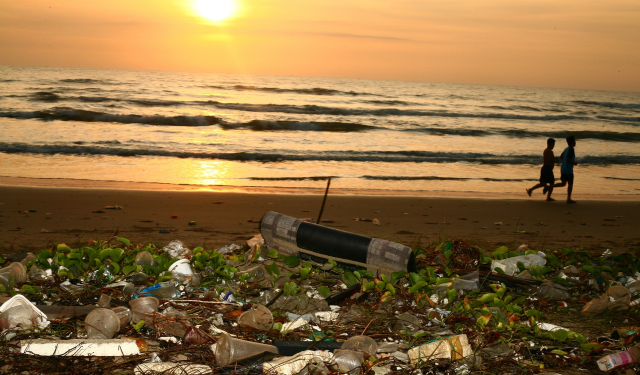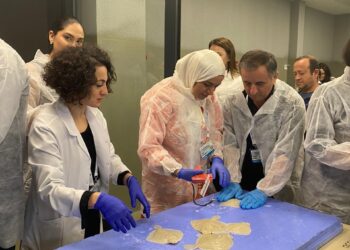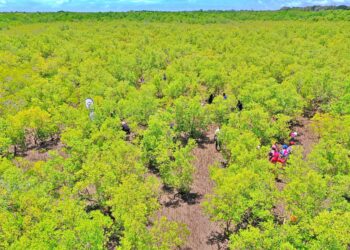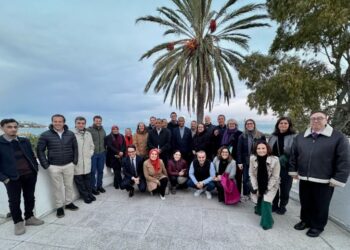Plastic Pollution in Tunisia. An Ever-Evolving Environmental Challenge – Tunisia’s blue economy loses over 20 million dollars annually due to the effects of plastic pollution caused by the consumption of 4.2 billion single-use plastic bags per year, according to the World Bank report “Blue Economy in Tunisia: Opportunity for an Integrated and Sustainable Development of the Sea and Coastal Zones.”
Single-use plastic bags are one of the major sources of plastic pollution in Tunisia. These bags end up in nature, with a majority of them in coastal areas.
To combat this specific source of pollution, the Tunisian government has decided to move towards the ban of single-use plastic bags through a voluntary agreement with large retailers in 2017 and pharmacies in 2018, and is currently looking at a definitive ban based on Government Decree No. 2020-32 of January 16, 2020, which sets the types of plastic bags that will be prohibited from production, import, distribution, and possession on the domestic market.
Coastal and marine plastic waste pollution can result in negative consequences, such as high costs for their removal and beach cleaning, and risks to public health (contamination of seafood), according to the World Wildlife Fund (WWF).
Greenhouse gases impact
Greenhouse gases are a problem that’s destroying nature. According to the Heinrich Boll Foundation (Atlas of Plastic, 2019), plastics release greenhouse gases (carbon dioxide, methane, and other greenhouse gases) at all stages of their lifecycle. The pollution of Tunisia’s coastline by plastic waste is visually noticeable, especially when it comes to complex packaging waste, non-recyclable products, or hard-to-collect products, according to the BM. Additionally, the Covid-19 pandemic may worsen the problem of plastic pollution in Tunisia due to increased use of masks, personal protective equipment, single-use packaging, and the lack of proper waste management. Many recycling activities have also been temporarily disrupted due to the pandemic, causing the waste volume to increase. To develop viable and adequate organizational, financial, and technical solutions, an understanding of the current situation is needed to identify areas that need to be addressed to reduce or eliminate plastic pollution.
Alarming data
In Tunisia, the rate of mismanaged plastic waste, estimated at 60%, reflects the shortcomings of the current waste management system. This can help identify potential problems related to the limited capacity for waste collection and treatment, organizational, financial, and logistical gaps of local authorities, legislation that is not always adapted to environmental protection needs, and underdeveloped and poorly understood existing technology, according to the report’s authors. According to WWF, Tunisia dumped 8,500 tons of plastic into the Mediterranean in 2016, of which 33% returns to the Tunisian coast within a year. In fact, plastic waste moves 11% to the seafloor, 33% into the sea and washes up on the coast, and 56% remains on the sea surface. The same source estimates that the 8,500 tons of plastic dumped into the sea annually come from human activities along the coast, particularly in Tunis, Sousse, Sfax, and Gabès (78%), fishing, aquaculture, and ships (15%), and river deposits, particularly from the Medjerda (7%).
Plastic Pollution in Tunisia. An Ever-Evolving Environmental Challenge







